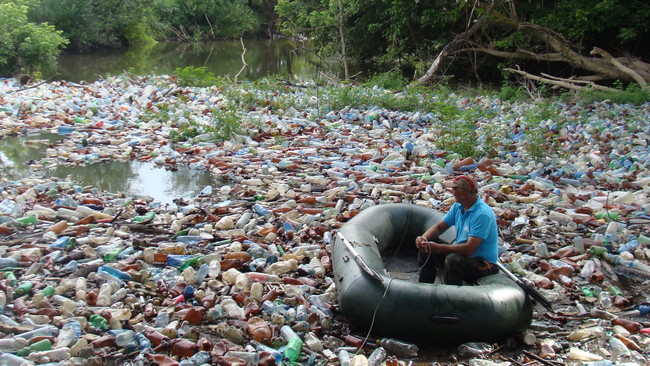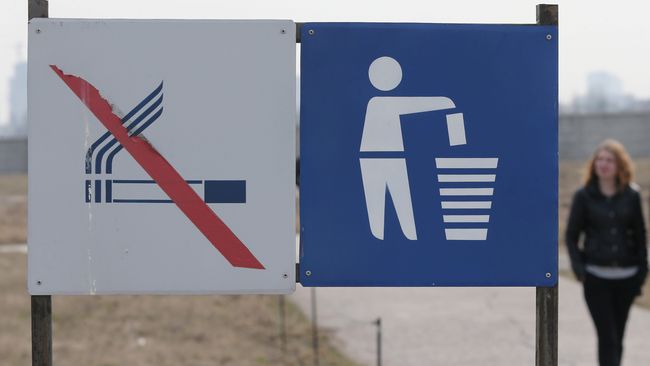The environmental police are ready to start working
The government has approved a plan for reforming the state environmental protection controls. Our experts discuss its advantages and disadvantages
The reform of the State Environmental Inspectorate (SEI) recalls the story of the reform of the patrol police or the epic of changes in the healthcare system. The only difference is that changes in the environmental controls sector are followed by a much smaller number of people. Still, this reform has also been talked about a lot, the change plan has been in preparation for a long time, but it has not been implemented yet. However, the environmental novelties concern each of us, as they will determine, for example, what kind of water we will drink – clean or polluted by unscrupulous businessmen, as well as whether our grandchildren will see rich nature or whether traders will be allowed to destroy red-listed snowdrops, farmers to till over protected landscapes and poachers to destroy the populations of moose or the European bison instead...
All this should be monitored by environmental inspectors, who often fail to perform their duties as they should. Den/The Day has long followed the work of the SEI. Our editor-in-chief Larysa Ivshyna has repeatedly noted that the service should be run along the lines of environmental police services in the US or Europe. We were happy to hear similar statements from former Environment Minister Ihor Shevchenko. He even attracted professionals from Poland to share their experiences. However, that was it. Now, the cause is being taken up by the current Minister of Ecology and Natural Resources of Ukraine, Ostap Semerak. He recently introduced to the Cabinet a plan of reforming the state environmental protection controls, which involves the elimination of the SEI.
NEW PEOPLE AND NEW RULES
The Cabinet of Ministers has approved the plan. According to Semerak’s presentation at the Cabinet meeting, the reform will take place in three stages. As the first step, it calls for the elimination of the SEI and the creation of a State Environmental Service from scratch. As noted in the report delivered by the minister, the new body will hire staff through an open competition, with no recertification of its predecessor’s employees allowed. The second stage will involve updating the legislative framework. The third stage will involve the introduction of a new system of environmental monitoring.
That is, a totally new service is to start operations, with new people and new powers. According to Semerak, the system of fines for violations of environmental laws will be changed as well: “At present, the highest fine for office-holders guilty of pollution is set at 1,700 hryvnias, and that for private individuals at 1,300 hryvnias. To meet an inspector’s targets, they need to inspect 20 entities in a month. Meanwhile, the standards call for no more than seven inspections per inspector per month. They usually do not carry out these inspections but switch to smaller companies instead and use monitoring with a view to possible personal enrichment,” stressed the minister.

Photo by Ruslan KANIUKA, The Day
“DO NOT DESTROY THE ENVIRONMENTAL CONTROLS”
Currently, the plan has not yet been released for a detailed review of its contents. Its key provisions have been made public by the environment minister, though not all proposals of his department have found support among environmental NGOs. For example, the minister proposed to extend the moratorium on inspections, which is set to expire at the end of 2017. Environmentalists are strongly opposed.
“We welcome the idea of reform, but the plan calls for waiving planned inspections of SMEs, which make up more than 90 percent of all businesses,” said Alla Voitsikhovska, environmental expert of the international charitable organization Environment-People-Law, which took part in the preparation of the plan. “It is necessary to carry out inspections of all businesses. We have inserted a provision stating that an inspection can only be waived when the enterprise in question has been monitored and no harmful effects on the environment from its activities have been noticed. The minister’s desire to implement a European approach is commendable, but we should not destroy the environmental controls. We should prescribe clear guidelines for inspectors, fight corruption, and increase their salaries. I think that honest businesses should not be afraid of inspections. Of course, it is not profitable to install treatment plants, but business owners should be aware that they share resources with the rest of the public. There are no borders in the air.”
“HELLO, WE ARE LOOKING FOR SHERIFFS!”
Also, the activists oppose the proposal to replace volunteer municipal environmental inspectors with sheriffs. According to Voitsikhovska, the national control functions should not be transferred to the local government level. At the same time, the activists favor the minister’s idea to recruit professionals for the new service through a competition.
“They must be motivated and free from corruption connections,” said Voitsikhovska. “They have to defend the rights of citizens. We cannot allow a new service to hire people who come to work only for economic reasons. The competition regulations should be perfectly clear and allow the body to choose its employees not on the basis of political affiliation, but rather on that of professionalism and expertise. Secondly, we should offer clear guidelines for the inspector to prevent any manipulations and other risks during an inspection.”
“ENVIRONMENTAL LAW VIOLATIONS GO UNCHECKED”
Overall, the environmental community is positive about the idea of reforming the SEI, because in its current form, the service fails to meet the nation’s environmental objectives. However, the activists expect the politicians to go beyond mere talk and the presentation of the plan, and take some action.
“The idea of reforming the SEI is correct, but we have not seen the results yet,” reflected Oleksandr Sokolenko, an expert of the National Ecological Center of Ukraine. “It is obvious that all the branches of the inspectorate have become havens for corrupt officials and extortionists over the past 20 years, as there was no other motivation available for those who came there to work for a 2,000-hryvnia salary. We have a vertical structure in which a person without proper education was appointed to the position of chief inspector. They did it on the orders of the ministry, and the appointee was the minister’s henchman who transferred a portion of the money raised through extortion activities to the minister. Meanwhile, the inspection duties went unperformed. When inspectors are called to a case of trading in early spring flowers, they never come. Even if they do come – I saw it firsthand when participating in such raids – they accept a bribe from the offender and release them, undeterred by the activists’ presence. It is necessary to create a new service that would not include just three inspectors who sit in Kyiv and write reports. This should be a mobile service, which will be able to go to the violation location at any time and will monitor compliance with the environmental legislation like the patrol police does in its field. I say it because all environmental law violations go unchecked at present.”
Newspaper output №:
№38, (2017)Section
Day After Day





